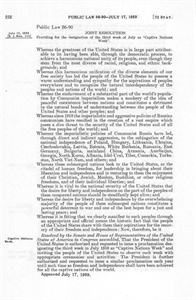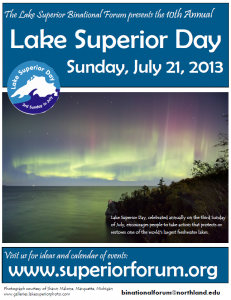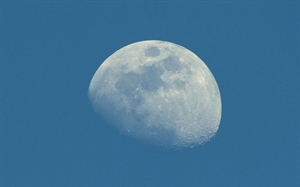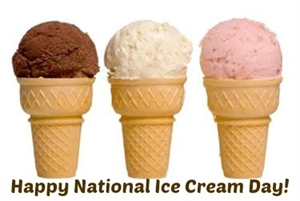Space Exploration Day 2024 is on Saturday, July 20, 2024: Why is Space Exploration so stagnate these days?
Saturday, July 20, 2024 is Space Exploration Day 2024. Why do we go to space? William Pomerantz, Virgin Galactic answers why in this TEDx talk
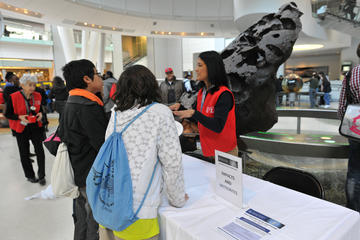
There is no return of investment on space exploration. All of the private endeavors are working on things that could produce a profit. Pure space exploration is just for scientific purposes only. How does proving there is life on Mars profitable? it isn't. Anyway, space exploration is not stagnant. There have been numerous missions to Mars, a probe to Saturn, a probe to Jupiter, a probe, New Horizon, on its way to Pluto, and a new space telescope in the works. Manned space exploration is stagnant, not space exploration as a whole.
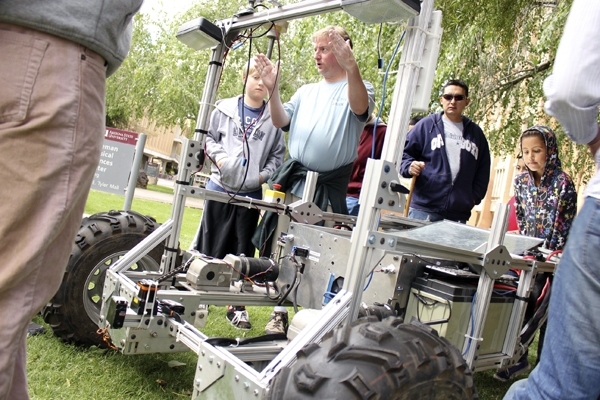
Is space exploration important or is it a waste of effort?
Is space exploration really desirable at a time when so much needs doing on Earth? It is an often-asked and serious question that requires a serious answer. One could present many arguments, from jobs and education to technology development and national security, for undertaking a robust space program. In an ideal world only one argument is necessary, though in the real world some would argue it is not sufficient. That argument is exploration, and that we should undertake it for the most basic of reasons -- our self-preservation as a creative, as opposed to a stagnating, society.
Three Ages of Exploration
The concepts of "discovery" and "exploration" are frequently found throughout space literature, most recently in the new Vision for Space Exploration, billed as "a renewed spirit of discovery," enunciated by President Bush in January, 2004. The same concepts are emphasized in the Aldridge Commission's Report on the Implementation of United States Space Exploration Policy, titled "A Journey to Inspire, Innovate and Discover." The question "should we explore" must be seen in deep historical context, not in the context of present-day politics or whims.
Explorer 1 Image right: America enters the Third Age of Exploration. William Pickering (left), James Van Allen (center), and Wernher von Braun (right) hoist a model of Explorer 1 in celebration, after it became the first American satellite to orbit Earth in 1958. Photo credit: NASA/JPL.
Historians have distinguished three great Ages of Exploration -- the Age of Discovery in the 15th and 16th centuries associated with Prince Henry the Navigator, Columbus, Magellan and other European explorers; the Second Age in the 18th and 19th centuries characterized by further geographic exploration such as the voyages of Captain Cook, underpinned and driven by the scientific revolution; and the Third Age beginning with the International Geophysical Year and Sputnik, primarily associated with space exploration, but also with the Antarctic and the oceans.
The United States both affected and was affected by the Second and Third Ages of Exploration, but the important point is that each of those ages of exploration was the product of specific decisions of certain cultures: the Europeans (and briefly the Chinese) for the first Age, the Europeans and Americans for the second Age, and the Soviet Union -- soon joined by the United States, then Europe and other countries -- for the third Age.
As historian Stephen J. Pyne has argued, "Exploration is a specific invention of specific civilizations conducted at specific historical times. It is not ... a universal property of all human societies. Not all cultures have explored or even traveled widely. Some have been content to exist in xenophobic isolation."
Ming China
There is a value judgment in that last sentence -- that xenophobia and isolation are bad, but that they are in fact bad, I think, is borne out by history. The case most often cited for a societal decision not to explore -- with generally recognized bad effects -- is Ming China in the 15th century. You will find this case, for example, made in Bob Zubrin's books on Mars, and before that made by NASA Administrator James Beggs. Is it hype, or is it history?
Some day historians will be writing about whether or not WE chose wisely, not only to make a proposal to explore, but also to fund it.
The historical facts are quite clear. Historian Daniel Boorstin -- the recently deceased Librarian of Congress -- pointed out that in the early 15th century the biggest Chinese ships were up to ten times the size of Columbus's later in the century. While Columbus had 17 ships and 1500 men on the largest of his four expeditions, the Chinese Admiral Zheng He had 317 ships and 27,000 crewmen on the first of his six expeditions. Following a maritime tradition stretching back to the 11th century, from 1405-1433, these ships plied the seas of Southeast Asia, sailed to India, the Persian Gulf, the Red Sea and down the East Coast of Africa. (And yes, these are the voyages that Gavin Menzies addressed in his book 1421: The Year China Discovered America, although in my view that claim is not supported by good evidence.)
But what is important is this. Although Chinese state revenues were probably 100 times Portugal's, after the 1430s the Ming emperors had other priorities, and it was the Portuguese and other European countries that led the way in exploration. As Boorstin noted "When Europeans were sailing out with enthusiasm and high hopes, land-bound China was sealing her borders. Within her physical and intellectual Great Wall, she avoided encounter with the unexpected .... Fully equipped with the technology, the intelligence, and the national resources to become discoverers, the Chinese doomed themselves to be discovered."
In their recent world history, historians J. R. and William McNeill come to the same conclusions, and historians in general tend to agree that the

Space?????
n honor of his iconic coverage of America's space program, NASA presented journalist Walter Cronkite with an Ambassador of Exploration Award on Feb. 28 at a ceremony in Austin, Texas.
Image left: Veteran journalist Walter Cronkite is honored at a ceremony, below, in Austin, Texas. Photo Credit: NASA.
Calling the honor, "beyond anything I could have ever believed," Cronkite said he wanted to share it with his fellow journalists who covered the great adventure of space exploration. "It's hard for us to really understand the immensity so far of the conquest of space," he said.
Cronkite, the only Ambassador of Exploration recipient who was not an astronaut or NASA employee, said it was a "great honor to participate in any way -- even as a reporter." He also said he envied those reporters who would get to cover the next stages of space exploration.
From the beginning of America's manned space program to the age of the Space Shuttle, Cronkite anchored CBS Evening News. Already a veteran journalist before coming to network news, Cronkite anchored the launch of Apollo 11, shouting "go, baby, go" as it rocketed into space. His marathon, live coverage of the first moon landing brought the excitement and impact of the historic event into the homes of millions of Americans and observers around the world, spending 27 of the next 30 hours on the air.
In a 1996 interview with Kira Albin, Cronkite opined that "the whole period of the '60s changed a lot of us; there was never a decade like that in American history ... to have the decade capture one of the great accomplishments of this century: man landing on the moon. That will be the one event of the 20th century, despite all the other great scientific and technological innovations and inventions that came down the line, that will live in history 500 years from now ...
Cronkite echoed those thoughts at the award ceremony, drawing parallels to our modern celebration of Columbus Day:
" I think that 500 years from now the young people that are living on space stations and space cities and perhaps on the orbs themselves out there ... they will be recognizing the most important feat of all time. 500 years from now they will be celebrating the first landing on the moon and the first walk on the moon."
He also quipped that the Apollo 11 landing was the only time he'd ever been left speechless -- "What I said was 'Gosh! Wow! Gee!' -- immortal words obviously."
As he said in the 1996 interview, "I had as much time to prepare for that moon landing as NASA did, and I still was speechless when it happened. It just was so awe-inspiring to actually be able to see the thing through the television that was a miracle in itself. "
Image above: CBS news anchor, Walter Cronkite, covered NASA missions from Mercury through the space shuttle. Image credit: CBS News.
Cronkite is often remembered for his enthusiastic coverage of America's technological prowess, especially NASA's space missions, from the early Mercury launches, through the ground-breaking Gemini missions, to the subsequent moon landings and the space shuttle program.
NASA is presenting the Ambassador of Exploration Award to the 38 astronauts and other key individuals who participated in the Mercury, Gemini and Apollo space programs for realizing America’s vision of space exploration from 1961 to 1972.
The award is a sample of lunar material encased in Lucite and mounted for public display. The material is part of the 842 pounds of samples brought back to Earth during the six Apollo lunar expeditions from 1969 to 1972.
Cronkite presented the lunar sample to University of Texas president William Powers. He accepted on behalf of the Center for American History, the archival home of the Walter Cronkite Papers. The sample will be displayed in the Center's exhibit gallery.



